If you are looking for premium audio-output devices like speakers and amps that promise great performance then Marshall should be your brand of choice. This firm has its home in the UK and it is a well known brand there.
Marshall is well-known for providing great quality audio equipment and they have established their name in this industry over the years. All of these facts make the Marshall Origin 20 to be the best device for you to own.
Professional guitarists who want to produce crystal clear sound should definitely invest in Marshall Origin 20. It is the kind of amp that lifts up the musician’s performance and transcends them into a whole new world.
Marshall Origin 20 is a must-have device for both beginner and seasoned guitarists. Since it is an amp it can be used for many other musical instruments too.
It has been developed and manufactured in such a way that enhances all the sounds that go through it.
The clarity and the crispness of the tune is what sets Marshal Origin 20 apart from any other amp in the market.
However just like any other device, sometimes you might encounter certain common problems on your amp. We have got you covered with the following list of problems and their solutions.
Marshall Origin 20 Problems
1. External Amp Head
One of the most common issues that you may come across pertains to the external or secondary amp head. This amp head needs to be connected to the primary Marshall 20 amp. The external needs to be compatible with the Marshal Origin 20.
Having an external amp head can also become cumbersome. They are heavy and they add to the number of equipment that you need to carry around for a practice or performance.
You have to be extra cautious about the connection between both the amps so that your overall performance is not compromised. External cables will be required to connect both of them to each other.
If the connection between the external amp head and Marshall Origin 20 is weak or the wiring is worn out and old then the sound output will be bad and your performance can get ruined completely.
You will have to take the best possible care of both the devices to ensure that they don’t get damaged and the wiring does not get disheveled.
2. Footswitch Not Responding
The footswitch on the Marshall Origin 20 is the best selling feature of the device. At times it may stop working.
The two-way footswitch on this amp has been added for the ease of the user so that their performance does not become complicated and they are relaxed throughout. The gain boost can be controlled by you entirely because of this footswitch.
However since it is something that is being handled on the floor by your foot, sometimes due to extremely rough playing they might stop responding.
This issue needs to be fixed right away so that your performance can go on as planned. Without footswitches your control on your guitar and amp is reduced and nobody wants that.
If you have recently gotten the footswitch replaced due to wear and tear, then you need to make sure that the new ones are completely compatible with your amp and guitar.
You also need to check the batteries and connectors on the footswitches to ensure that they are in perfect working conditions. If the batteries or connectors are giving you any trouble then you can try using them with direct power supply.
3. Speaker Jack Issues
Another quite common issue is related to the speaker jack. Some Marshall Origin 20 owners have complained that their speaker jack started creating problems.
Either the audio was not playing properly or the output was compromised in terms of quality and volume. Most of the time Marshall solved the issues under the terms of warranty.
If you own a Marshal Origin 20 and it has speaker jack issues then check if your device falls under the warranty period. If it does then it would be a good idea to send it for repair to the parent company through the proper channels.
They will get the speaker jack replaced for you so that you do not face the same problem again. This will also ensure the product integrity remains intact.
4. Overheating Components
This is a problem that can occur with any device or appliance. Every electrical device needs a certain amount of downtime so that the product life is not reduced or compromised.
In that sense, it is important to give your Marshal Origin 20 a breather. So if you have had a long performance and a friend asks to borrow it for use for another few hours then you should turn down the request.
However if you know that you have not used the amp long enough and yet it is starting to heat up like it should not. Then the right thing to do would be to call the customer support department at Marshall.
They know better about dealing with such problems. In case if a particular part needs replacement then you can also get that done. It is better to go to the company directly and not to a third-party repair person.
In case if your Marshal Origin 20 is still in its warranty period then you can get all the replacements and repairs done from them without any additional costs.
5. Signal Leakage
Any device that works on connectors and wires, can suffer through signal leakage. This issue could stem from two things. Either the wires that connect your guitar to your amp have become faulty or your footswitch is not compatible with the amp.
These two things can cause signal leakage. This is when your amp does not pick up all the signals of your guitar.
It is a complicated problem that should be referred directly to the Marshall customer service department so that they can deal with it.
They have a much greater amount of experience dealing with their product issues and repairs and they will know best how to deal with the given situation.
Bottomline
Marshall Origin 20 is a great device that can experience certain common glitches.
Overall users seem to be quite satisfied with this product as the issues listed above are quite benign and nothing that you or the Marshall customer service department cannot solve.
If you have encountered an issue with your beloved amp then go through the list above and choose the best way forward.

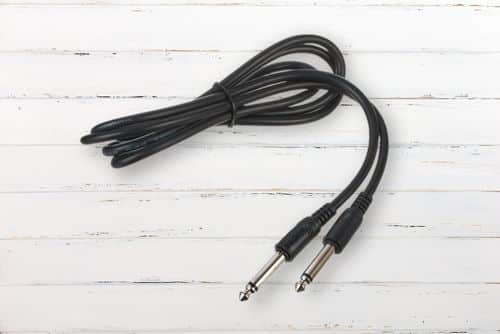
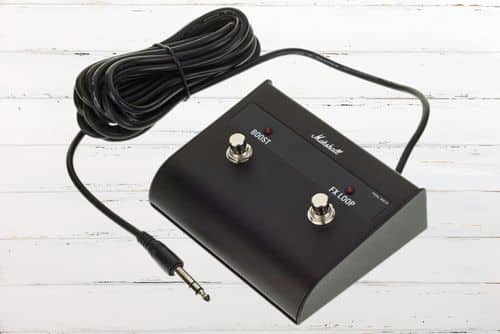
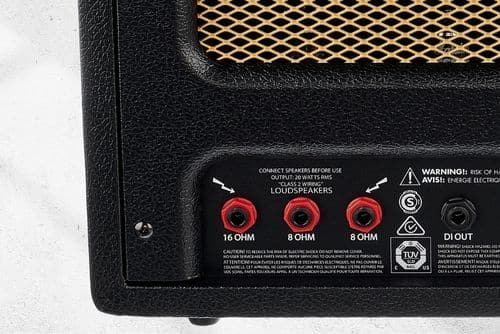

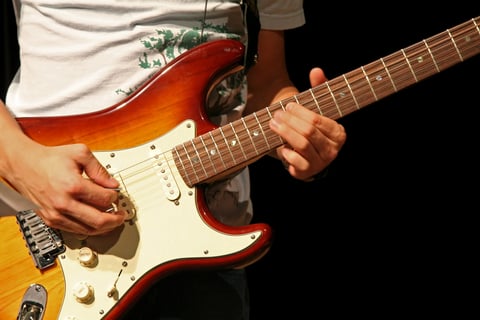
Hi All
Guitar ‘enthusiast’ of 50 years. Bought the 20H as more of an 800 MV mini clone than a Plexi. Current setup is a Two Notes ‘Le Lead’ Preamp / OD / Distortion tube stomp inline to the input. The fx loop runs a tc SCF Corona limited (black box) mini stomp and Flashback 2 delay. The head is run to a pair of Orange closed back, V30 1×12 cabs. The guitars are a ‘77 LPC and an ESP LTD ST-213 Strat (both heavily modified).
While the head itself is mono, I am able to generate 3-D stereo soundscapes via the chorus and delay pedals. The Two Notes pre/OD/Dist allows quick switching from crystal clean to AC/DC (and heavier) tones with the flick of a foot.
The EL-84s breakup nicely with the Master around 7 or so. This is true at all three output levels. While the boost function is nice for soloing, I find little use for it as I’m able to handle most / all of that thru the Two Notes. I cannot speak to whether it is closer to a Plexi or 800 MV as I have only played an 800 for a significant amount of time and have only played a Plexi twice never having the time to truly explore its full gamut of tonal qualities.
What I CAN say is the 20H is a fantastic head yielding all the great Marshall tones we’ve all come to love. As I dote on all my equipment and no longer play out (studio only), I cannot confess to roadworthiness.
My oldest guitar bud of 40 years (a professional guitar player in his own right) finds the amp one to be sought out as faithful to what we’ve come to expect from Marshall.
9.5 / 10.
In other words, there are no problems with this amp that are not FUP issues (Faulty User Problems). I have had an ORI20H since Spring 2018. It loves pushing the Greenback I installed in a used MX112 cabinet that I bought for this purpose. And while I am at it, allow me to say that anyone who does not engage the gain boost is missing all the fun. ;->